Fueling Creativity in Education
Episodes
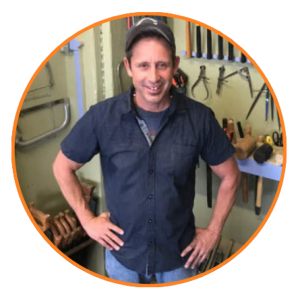
Tuesday Sep 19, 2023
Tuesday Sep 19, 2023
In this episode of the Fueling Creativity in Education Podcast, Matthew Worwood and Cyndi Burnett interview Peter Wachtel, a teacher at Adolfo Camarillo High School in California. Peter is an experienced teacher of architecture and product innovation design and has a diverse background in the toy and entertainment industry. He was also the winner of the Harbor Freight Tools for Schools Teaching Excellence Prize and the California ACTE CTE Teacher of the Year.
The conversation begins with a discussion about Peter's Guinness World Record for creating the longest charcuterie board in the world. He explains that it was a collaborative project with his students, involving careful planning and logistics. The board was 204 feet, 7.8 inches, and featured various cheeses, meats, and appetizers arranged in an aesthetically pleasing way.
Peter then shares his journey into product design and inventing, recounting his early days of tinkering with bicycles and even turning a lawnmower into a go-kart. He emphasized the importance of curiosity and exploration in education, as well as the value of learning from both good and not-so-great teachers. The episode concludes with Peter discussing how he brings creativity into the classroom. He believes that anything around us can be an opportunity for exploration and discovery. Through projects like the charcuterie board, his students learn teamwork, collaboration, and problem-solving skills. Peter highlights the importance of involving the community and different entities in these projects, giving students a real-world understanding of how businesses operate.
Overall, this episode provides valuable insights into how creativity can be infused into education and the transformative impact it can have on students' learning experiences.
Mentioned in this Episode:
See the largest charcuterie board that broke the record!
Azhelle Wade's Episode on Toy Design
Eager to bring more creativity into your school district?
Check out our sponsor Curiosity2Create.org and CreativeThinkingNetwork.comWhat to learn more about Design Thinking in Education? Do you want to build a sustained culture of innovation and creativity at your school? Visit WorwoodClassroom.com to understand how Design Thinking can promote teacher creativity and support professional growth in the classroom. Subscribe to our monthly newsletter!About Peter Wachtel: Peter Wachtel teaches architecture and product innovation design at Adolfo Camarillo High School in Camarillo, Calif. He was a 2019 winner of the Harbor Freight Tools for Schools Teaching Excellence Prize & 2022 California ACTE CTE Teacher of the Year, 2023 Guinness World Record Holder (Longest Charcuterie Board in the World), taught design at the college level at MIT, Pratt Institute, Parsons School of Design and Otis College of Art and Design for more than 20 years. Wachtel, teaching after a 30-year career in the toy & entertainment industry, is the former president of the Southern California Toy Association, a published author of two books and has been a toy and product designer/inventor/ director at companies such as Marvel & Six Flags.
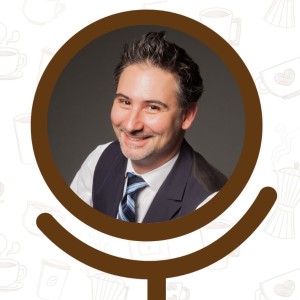
Tuesday Oct 11, 2022
Tuesday Oct 11, 2022
Kicking off Season 5 of the Fueling Creativity in Education podcast, Dr. Cyndi Burnett and Dr. Matthew Worwood welcome Dr. Edward P. Clapp, a Principal Investigator at Project Zero. Edward explores creativity and innovation, design and maker-centered learning, contemporary approaches to arts teaching and learning, and diversity, equity, and inclusion in education.
Listen in as Edward shines a light on the power of participatory creativity, how to overcome the eight crises of creativity in education, and how to use “a biography of an idea” to tell the story behind an idea. He also discusses why it’s beneficial to remove individualism, or the ego, from the participatory creative process and specific strategies teachers can use to facilitate participatory creativity and collaboration in the classroom.
“The way that I define participatory creativity is uniquely contributing to the development of creative ideas within a particular social and cultural setting.” – Dr. Edward P. Clapp
Plus, you’ll gain insight into how to introduce access and equity to the creative classroom, how to overcome the potential pitfalls of participatory creativity, and when to push students beyond their comfort zone as opposed to just letting them be their best selves in the classroom.
Recommended Resources:
Project Zero
Listen to the episode with Michael Hanchett Hanson
Don’t call it collaboration! On ResearchGate
Participatory Creativity by Edward P. Clapp
Subscribe to our monthly newsletter!
Eager to bring more creativity into your home or classroom?
Access various creativity resources and tools & listen to more episodes of The Fueling Creativity in Education Podcast by visiting www.CreativityandEducation.com.
What to learn more about Design Thinking in Education?
Do you want to build a sustained culture of innovation and creativity at your school? Visit WorwoodClassroom.com to learn how Design Thinking can promote teacher creativity and support professional growth in the classroom.
Have a question? Email Dr. Burnett and Dr. Worwood at questions@fuelingcreativitypodcast.com!
You can also find The Fueling Creativity in Education Podcast on Apple Podcasts, Spotify, Audible, and PodBean! Make sure to rate, review, and share the podcast if you enjoy it!
About Dr. Edward P. Clapp:
Edward P. Clapp, Ed.D. is a Principal Investigator at Project Zero interested in exploring creativity and innovation, design and maker-centered learning, contemporary approaches to arts teaching and learning, and diversity, equity, and inclusion in education. In addition to his work as a researcher, Edward is also a Lecturer on Education at the Harvard Graduate School of Education. Edward’s most recent books include Participatory Creativity: Introducing Access and Equity to the Creative Classroom (Routledge, 2016) and Maker-Centered Learning: Empowering Young People to Shape their Worlds (with Jessica Ross, Jennifer Oxman Ryan, and Shari Tishman, Jossey-Bass, 2016).
Connect with him on LinkedIn
Follow him on Twitter
Check out his books
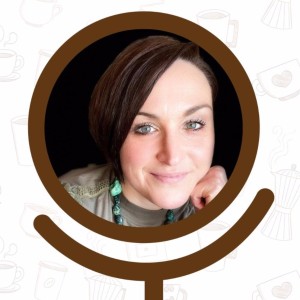
Tuesday Apr 05, 2022
Inclusive Maker Spaces with Caroline Haebig
Tuesday Apr 05, 2022
Tuesday Apr 05, 2022
What is a makerspace and how can makerspaces change the landscape of education? In this episode of the Fueling Creativity podcast, Dr. Cyndi Burnett and Dr. Matthew Worwood speak with Caroline Haebig, author of The Maker Playbook: A Guide to Creating Inclusive Learning Environments. Caroline sheds light on today’s makerspace movement and the benefits of high-impact, inclusive maker learning culture inside schools and school systems.
Listen in to learn how educators from different fields can use a makerspace to foster innovative design thinking and creativity, the importance of integrating design ethics into the prototype design process, and the must-have and nice-to-have materials (both raw and digital) to include in a makerspace. Then, Caroline offers expert advice on finding entry points in your curriculum for maker learning and creating a more inclusive culture in your makerspace.
“Maker learning has a lot of opportunity to help kids develop their metacognition, reflection, and self-assessment skills.” - Caroline Haebig
Caroline’s Tips for Teachers and Parents:
Maximize opportunities for kids to share curiosities and ask questions.
Provide a scaffolded design process so students know what they’re expected to know, do, and engage with during specific parts of the design process.
Get kids to think and talk about the choices and decisions they are making.
Resources Mentioned:
The Maker Playbook by Caroline Haebig
Makedo
morphi app
Disruptus
Mission Feature Feature
Tinkercad
ScratchJr
Subscribe to our monthly newsletter!
Eager to bring more creativity into your home or classroom?
Access various creativity resources and tools & listen to more episodes of The Fueling Creativity in Education Podcast by visiting www.CreativityandEducation.com.
What to learn more about Design Thinking in Education?
Do you want to build a sustained culture of innovation and creativity at your school? Visit WorwoodClassroom.com to learn how Design Thinking can promote teacher creativity and support professional growth in the classroom.
Have a question? Email Dr. Burnett and Dr. Worwood at questions@fuelingcreativitypodcast.com!
You can also find The Fueling Creativity Podcast on Apple Podcasts, Spotify, Audible, and PodBean! Make sure to rate, review, and share the podcast if you enjoy it!
About Caroline Haebig:
Based in Wisconsin, Caroline Haebig has extensive experience designing and leading professional learning for teachers, instructional coaches, and administrators nationwide. Focused on helping educators develop innovative teaching, learning, and assessment practices, she has successfully facilitated student, teacher, and administrator preparation for school system 1:1 technology initiatives to support student learning and led district -wide work in the areas of inclusive maker learning and technological literacy. Caroline Haebig is also the author of The Maker Playbook: Designing Inclusive Learning Experiences, a book for K-12 leaders and educators. An accomplished educator, Haebig was named an ISTE Emerging Leader, Apple Distinguished Educator, Google Certified Innovator, and a recipient of the Wisconsin State Superintendent Service-Learning Award, the University of Indiana Jacobs Educator Award, and the ISTE Outstanding Young Educator award.
Connect with Caroline Haebig on LinkedIn
Follow Caroline on Twitter
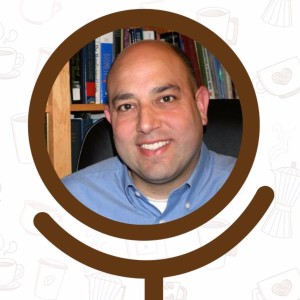
Tuesday Feb 22, 2022
Integrating Inquiry-Based Learning with Dr. Frank LaBanca
Tuesday Feb 22, 2022
Tuesday Feb 22, 2022
Why is inquiry-based learning such a powerful part of modern education? In this episode of Fueling Creativity, Dr. Cyndi Burnett and Dr. Matthew Worwood speak with Dr. Frank LaBanca, a teacher, educational researcher, and change agent based in Connecticut. Frank is one of the few public-school principals, nationally, that teaches students in his own classroom. Tune in to learn his approach to inquiry-based learning, a significant part of his strategic planning in founding the Westside Middle School Academy Magnet.
Frank shares why he prioritizes inquiry-based learning in the classroom over other approaches to education as well as the role of inquiry-based learning in developing creativity and problem-solving skills. He speaks on the power of teaching students to ask meaningful questions, how he does that, and how he helps teachers develop the capacity to implement and manage project-based learning in the classroom.
“Inquiry is questioning and investigation. In that simple elegance, it’s a wonderful way to approach learning because children can ask meaningful questions and seek their own idiosyncratic, diverse methods to try to solve those problems.” - Dr. Frank LaBanca
Frank also highlights the value of teachers not being the ultimate evaluators of students’ work, rather their work being evaluated by others in the real world. Then, he divulges how he selected new faculty for his school, the challenges he and his administrative colleagues are currently facing, and how his creative projects outside of school that inspire his professional development.
Frank’s Tips for Teachers and Parents:
Spend time problem-finding. Don’t rush students through the process of developing ideas for study.
Don’t be afraid of what you don’t know. Let it be exciting to not have answers for your students’/kids’ questions. Have confidence to facilitate the process of finding their own answers.
There’s a continuum between developing ideas and solving ideas. Don't be focused on just solving ideas.
“Developing questions takes time and students need and deserve the time to go through that process of evaluating questions.” - Dr. Frank LaBanca
“I think a really important part of inquiry is you learn to do and about at the same time.”
- Dr. Frank LaBanca
Resources Mentioned:
Listen to the episode with Natalie NixonListen to the episode with Jeffrey Davis
Listen to the episode with Dr. Vlad Glaveanu
Subscribe to our monthly newsletter!
Eager to bring more creativity into your home or classroom?
Access various creativity resources and tools & listen to more episodes of The Fueling Creativity in Education Podcast by visiting www.CreativityandEducation.com.
What to learn more about Design Thinking in Education?
Do you want to build a sustained culture of innovation and creativity at your school? Visit WorwoodClassroom.com to learn how Design Thinking can promote teacher creativity and support professional growth in the classroom.
You can also find The Fueling Creativity Podcast on Apple Podcasts, Spotify, Audible, and PodBean! Make sure to rate, review, and share the podcast if you enjoy it!
About Dr. Frank LaBanca:
Dr. Frank LaBanca is a teacher, educational researcher, and change agent. He is the Founding Principal of the Westside Middle School Academy magnet in Danbury, Connecticut. Previously he was the Director of the Center for 21st Century Skills at Education Connection as well as a 16-year high school biology and science research teacher. Dr. LaBanca has also taught and supervised research at the university level in both Biology and Educational Leadership. He has published over 60 peer-reviewed articles, book chapters, whitepapers, and research conference presentations. Having taught well over 2000 students, Dr. LaBanca’s most meaningful contribution to education is conducting extended open-inquiry authentic applied research with students. Over his tenure, numerous students have been nationally recognized for their work. He is one of the few public school principals, nationally, that teaches his own class with students.
Visit Frank’s website
Visit his blog
Follow him on Twitter
Connect with him on LinkedIn
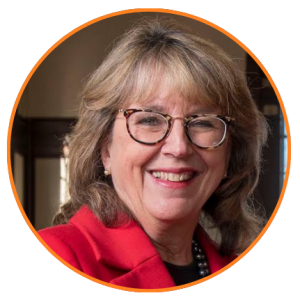
Friday Oct 22, 2021
Talking Talented and Giftedness with Dr. Sally Reis
Friday Oct 22, 2021
Friday Oct 22, 2021
In this episode of Fueling Creativity, Dr. Cyndi Burnett and Dr. Matthew Worwood interview Dr. Sally Reis, Professor of Educational Psychology at the University of Connecticut, about why teachers need to be more aware of gifted and talented students, including 2e students, and why there’s a big focus on creativity in this field of gifted education. She also offers recommendations on how we can continue breaking down the challenges women and young girls face in STEM education and leadership.
Sally shares her thoughts on why creativity isn’t incorporated into mainstream education curriculums as much as it is for gifted students, as well as her framework for schoolwide enrichment reading and exploration of passions and interests.
We also discuss the beneficial impacts of facilitating creative and productive activities in school, including science fairs and writing books. Then, using the concept of multi-potentiality, Sally addresses parental concerns with navigating their children’s many interests and talents.
“One of the major goals of many gifted education models and programs is the development of students’ creativity so that we will have the next generation of inventors, producers, painters, artists, engineers, high creatives that are doing good work in our society. This type of education benefits the entire globe.” - Sally Reis
Sally’s Tips for Parents & Teachers:
Exposure, exposure, exposure! Take your kids to museums, watch Tedx talks with them, watch good TV and films, expose them to nature, and so much more.
Help your children develop an interest. Good exposure leads to strong interests. Interests may not last, but their capacity to have interests is critical. Having interests makes life better.
Integrate project-based learning. Doing experiments and hands-on projects helps them nurture their creative fire, develop passions, and have fun while learning.
Resources Mentioned:
Schoolwide Enrichment Model: https://gifted.uconn.edu/schoolwide-enrichment-model
Schoolwide Enrichment Model Reading Framework: https://gifted.uconn.edu/semr-about
About Sally Reis: Sally Reis is the Vice Provost for Academic Affairs, a Board of Trustees Distinguished Professor, and a Teaching Fellow in Educational Psychology at the University of Connecticut. She currently holds the Letitia Neag Chair in Educational Psychology. She was a public school teacher and administrator for 15 years, prior to her work at UConn. She has authored more than 250 articles, books, book chapters, monographs and technical reports. She has traveled extensively across the country conducting workshops and providing professional development for school districts on enrichment programs and gender equity programs. Sally serves on the editorial board of the Gifted Child Quarterly, and is a past-president of The National Association for Gifted Children. She is a fellow of the American Psychological Association and was named a Distinguished Scholar of the National Association for Gifted Children.
Connect with Sally:
Connect with her on LinkedIn: www.linkedin.com/in/sally-reis-4304b810
Eager to bring more creativity into your home or classroom?
Access various creativity resources and tools & listen to more episodes of The Fueling Creativity in Education Podcast by visiting www.CreativityandEducation.com.
What to learn more about Design Thinking in Education?
Do you want to build a sustained culture of innovation and creativity at your school? Visit WorwoodClassroom.com to learn how Design Thinking can promote teacher creativity and support professional growth in the classroom.
Subscribe to our monthly newsletter!
You can also find The Fueling Creativity Podcast on Apple Podcasts, Spotify, Audible, and PodBean! Make sure to rate, review, and share the podcast if you enjoy it!
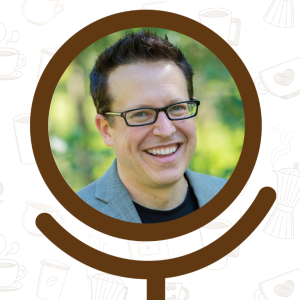
Friday May 14, 2021
When is Creativity appropriate? Part One with Dr. Ron Beghetto
Friday May 14, 2021
Friday May 14, 2021
How do you teach kids to be creative and behave appropriately within the constraints of the classroom? In this episode of Fueling Creativity, Dr. Cyndi Burnett and Dr. Matthew Worwood speak with Dr. Ron Beghetto, a renowned expert on creative thought and action in educational settings. Ron is also the Editor for the Journal of Creative Behavior, Editor for Review of Research in Education, Series Editor for Creative Theory and Action in Education (Springer Books), and has served as a creativity advisor for LEGO Foundation and the Cartoon Network.
Tune in to learn about Ron’s definition of creativity inside the context of a teaching and learning environment, along with how to teach children how to identify when creativity is most appropriate. He also sheds light on when and why we should be rethinking rules and structures in the education system.
“Most educators are already half way to creativity, they just have to open up the curriculum and the experience for themselves and for their students to do things differently… The really beautiful thing about that is it helps us realize that creativity requires difference.”
- Dr. Ron Beghetto
Resources Mentioned:
Listen to Part 2 with Ron Beghetto
Read the article Ron wrote with James Kaufman
Eager to bring more creativity into your home or classroom?
Access various creativity resources and tools & listen to more episodes of The Fueling Creativity in Education Podcast by visiting www.CreativityandEducation.com.
What to learn more about Design Thinking in Education?
Do you want to build a sustained culture of innovation and creativity at your school? Visit WorwoodClassroom.com to learn how Design Thinking can promote teacher creativity and support professional growth in the classroom.
Subscribe to our monthly newsletter!
You can also find The Fueling Creativity Podcast on Apple Podcasts, Spotify, Audible, and PodBean! Make sure to rate, review, and share the podcast if you enjoy it!
About Dr. Ron Beghetto:
Dr. Ronald A. Beghetto, PhD is an internationally recognized expert on creative thought and action in educational settings. He holds the Pinnacle West Presidential Chair and serves as a Professor in the Mary Lou Fulton Teachers College at Arizona State University.
Dr. Beghetto is the Editor for the Journal of Creative Behavior, Editor for Review of Research in Education, Series Editor for Creative Theory and Action in Education (Springer Books), and has served as a creativity advisor for LEGO Foundation and the Cartoon Network.
Visit Ron’s website
Buy his books